A federal judge granted Georgetown University postdoctoral researcher Badar Khan Suri’s motion to be released without bond at a May 14 hearing while he awaits further removal proceedings.
After hearing arguments from Khan Suri’s and the U.S. Department of Justice’s (DOJ) lawyers, Judge Patricia Tolliver Giles granted Khan Suri’s motion to be released from detention, declining to impose bond after deeming Khan Suri was not a flight risk or danger to the community. Khan Suri will now be able to return to Virginia.
Sophia Gregg, an immigration rights attorney at Virginia’s chapter of the legal nonprofit American Civil Liberties Union (ACLU) who argued motions on behalf of Khan Suri, said the federal government was prosecuting Khan Suri for his speech and relationships.
“The government’s retaliatory actions in this case are and were patently illegal,” Gregg said at a press conference after the hearing. “He should have never been arrested and jailed for his constitutionally protected speech just because the government disagrees with him. He should have never been punished for his relationship with his wife or his father in law. Today in court, we argued that Dr. Suri should be released on bond and return to his wife and young children as well as the entire community that he has here.”
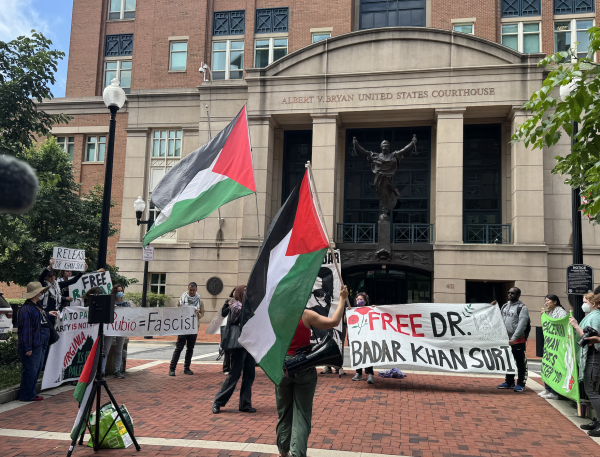
Federal immigration officers detained Khan Suri March 17 after his visa was revoked for alleged “Hamas propaganda” and connections to Hamas leadership. Khan Suri has been in a U.S. Immigration and Customs Enforcement (ICE) detention center in Alvarado, Texas, since March 22. Lawyers are currently at the Texas detention center facilitating Khan Suri’s release, according to the ACLU of Virginia.
Tolliver Giles previously ruled May 6 that Khan Suri’s habeas corpus petition, a report which alleges that one’s detainment is unlawful, would remain within Virginia’s jurisdiction instead of moving the case to Texas, where Khan Suri was held.
Tolliver Giles agreed with Khan Suri’s lawyers, who argued his detainment was punitive and retaliation for his speech and familial relationships, violating the First Amendment. Tolliver Giles added that Khan Suri suffered irreparable harm after being denied his Fifth Amendment right to due process.
Tolliver Giles said the First Amendment withstands the government’s argument that Khan Suri’s detainment was to protect U.S. foreign affairs.
“Even when national security is at stake, the court doesn’t defer to the government’s reading of the First Amendment,” Tolliver Giles said during the hearing.
Nader Hashemi, director of Georgetown’s Alwaleed Center for Muslim-Christian Understanding (ACMCU) where Khan Suri previously worked, said Tolliver Giles’ decision has implications beyond Khan Suri’s case.
“The one quote that stands out from Judge Giles is ‘release is in the public interest to oppose the chilling effect on free speech,’” Hashemi told The Hoya. “That suggests that the judge’s ruling today is much more than simply a victory for Badar Khan Suri and his family, but it also is a victory for democracy and for human rights here in the United States that are under brutal assault by the Trump administration.”
Gregg said Georgetown’s support of Khan Suri was necessary in convincing Tolliver Giles to grant the motion to release.
“I’d say that the majority of the letters of support — we had over two dozen for Dr. Khan Suri, from people who knew him, faculty, students from the highest echelons of Georgetown — were written in support of his release and written about his positive and remarkable character and the value of his work, the value of him as a person, the value that he brought to the Georgetown community,” Gregg told The Hoya. “They were instrumental in making sure that the judge knew that he is a valued member of the Georgetown community and that he is needed back in his community.”
During the hearing, public officials, leadership from assorted pro-Palestinian organizations and demonstrators rallied outside, speaking to the crowd and chanting. The crowd amassed to nearly 100 people.
Virginia State Senator Jennifer Boysko said Khan Suri’s detention contradicted ideals of justice and human rights central to the United States’ character.
“Our nation’s strength lies in our commitment to justice, fairness, and the rule of law,” Boysko said at the rally. “While federal immigration matters fall outside of my direct jurisdiction as a state senator, I believe in advocating for the constitutional rights of all. This is a human rights violation.”
Demonstrators chanted, “One, we are the people, two, we won’t stop fighting, three, for Suri’s freedom, now, now, now,” and, “the people united will never be defeated.”
JD Spain, an Arlington County Board member, said the detention of Khan Suri by President Donald Trump’s administration fits into a bigger picture about the status of the country.
“It’s time to have some very uncomfortable conversations about what’s happening in our nation, what’s happening in our communities, what’s happening with our youth,” Spain said at the rally. “This administration is putting people against people, organizations against organizations, communities against communities, but guess what? We are all a community. We are humans.”
Khan Suri’s detention comes amid a broader trend of ICE agents detaining pro-Palestinian individuals being, including Columbia University protestor Mahmoud Khalil and Rümeysa Öztürk, a Tufts University student who wrote a pro-Palestinian article in The Tufts Daily and was released May 10. These high-profile cases have spurred public discourse on free speech, academic freedom and due process rights.
Tolliver Giles pointed to the government’s lack of evidence in her decision — including Secretary of State Marco Rubio’s use of a rarely cited provision of the Immigration and Nationality Act to justify the arrests of students in speech cases.
“I gave the government multiple opportunities to submit any type of filing to controvert these claims or to support their opposition to this motion and they have declined,” Tolliver Giles said at the hearing.
Gregg said the release of Khan Suri and other detained academics and students represents the importance of the First Amendment and due process.
“What we saw with this judge in Dr. Khan Suri’s case is that she heavily considered all the legal arguments, all the precedent, all the constitutional protections that exist for everyone, for non-citizens and citizens alike, and measured that up against the government’s conduct, said his constitutional rights were being violated, and she needed to remedy that immediately,” Gregg told The Hoya.
Tolliver Giles ruled that Khan Suri must remain in Virginia, attend all court hearings in person unless exempt by the court and participate in the separate removal proceedings after his release. Khan Suri still faces removal proceedings in immigration court for which he had an initial hearing May 6.
Tolliver Giles also granted Khan Suri’s request to restrict the DOJ from tracking Khan Suri upon his release via GPS monitor and to require the DOJ to notify the court and counsel before detaining Khan Suri in the future. She declined the DOJ’s motion to stay the ruling, anticipating an appeal from the DOJ.
Khan Suri’s case in Virginia is different from his immigration case, which is simultaneously continuing in immigration court. According to Gregg, this hearing likely will not affect Khan Suri’s immigration court case.
Hashemi said Tolliver Giles’ ruling signifies the power of the judicial system in light of recent federal actions.
“Since the last presidential election, we’ve seen a lot of villains and unscrupulous people dominate our public life, but we also have heroes who are fighting for democracy, for human rights, for the rule of law,” Hashemi said. “The legal team made up of heroic lawyers, all working pro-bono from the ACLU of Virginia, the Center for Constitutional Rights, the CUNY Law Clinic in New York City, have all really demonstrated that if you stand up for justice, you can win in a court of law.”
“It’s been a dark time for this country and for our world, but this is one of the good days that we can celebrate,” Hashemi added.
This story has been updated with further developments.


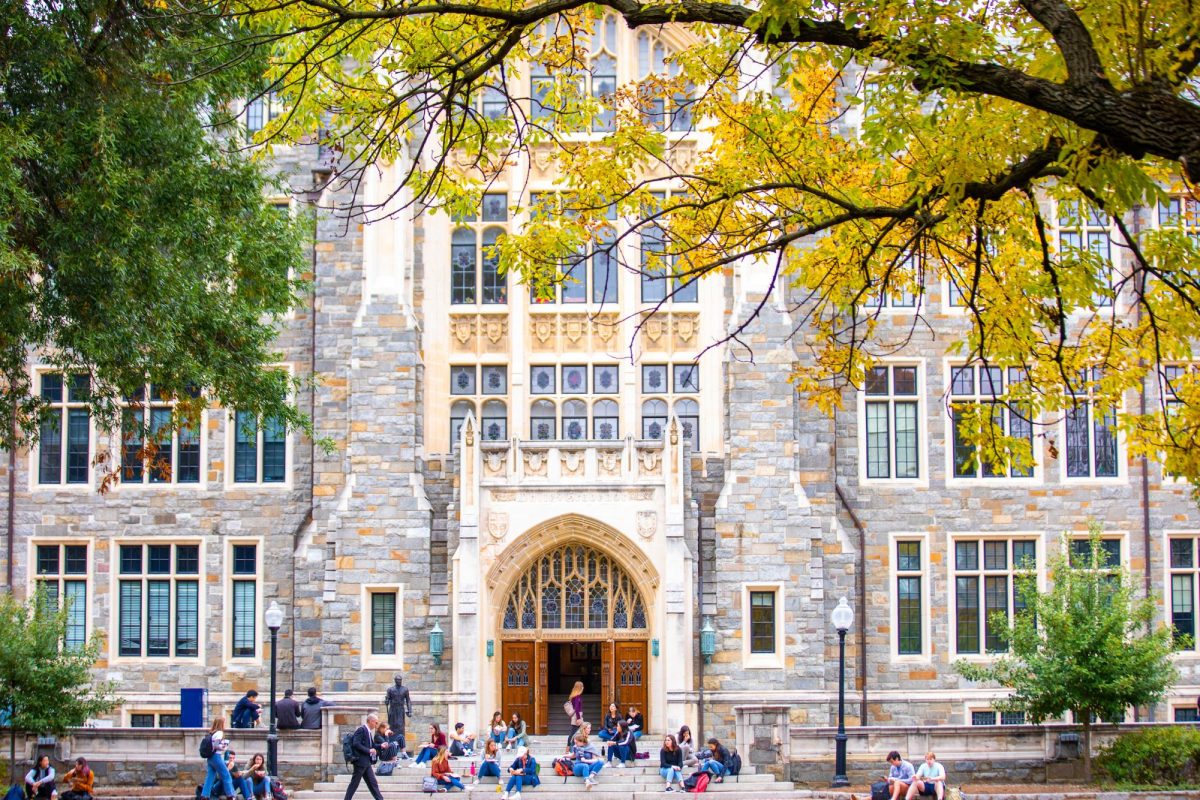
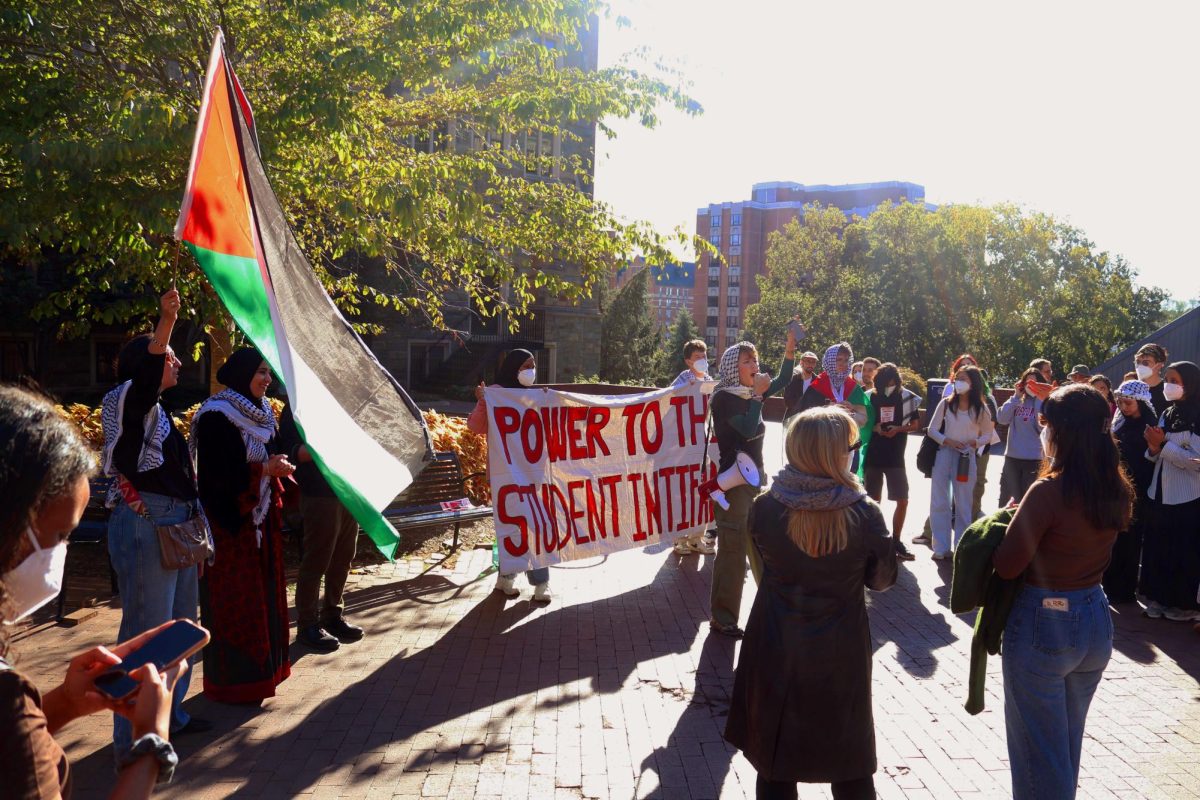
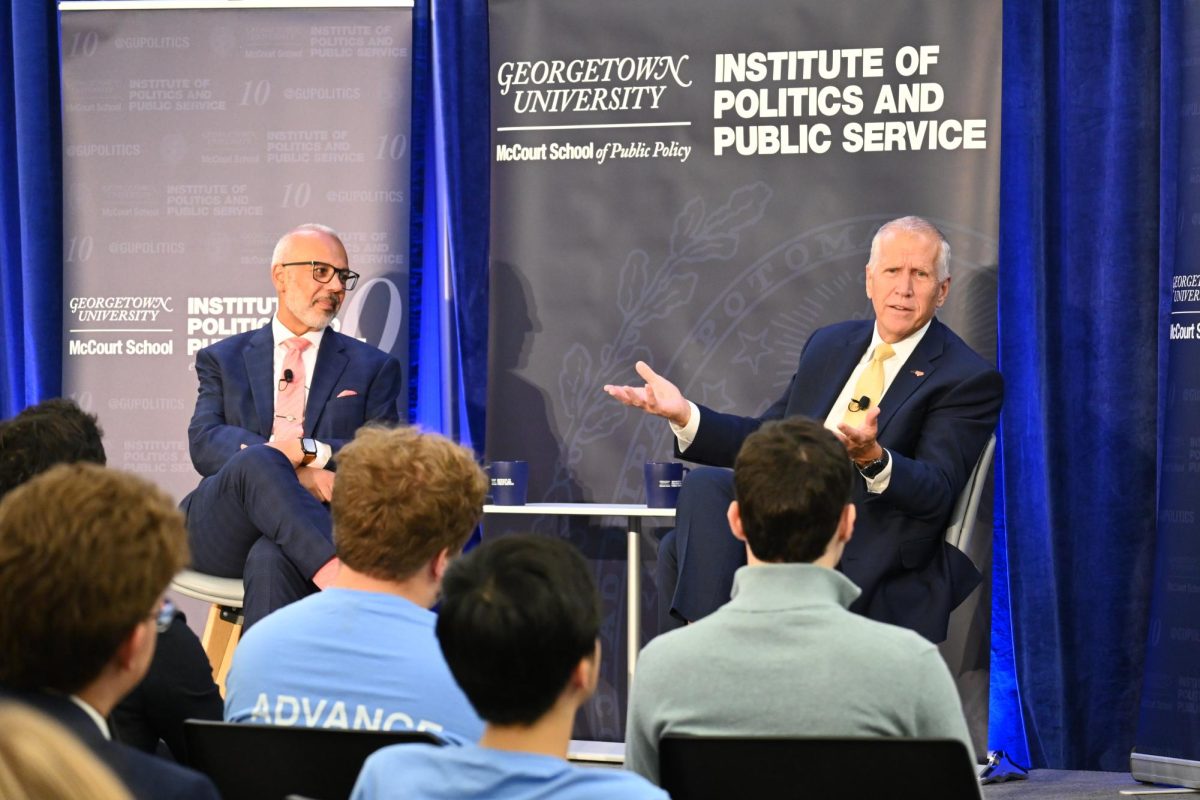
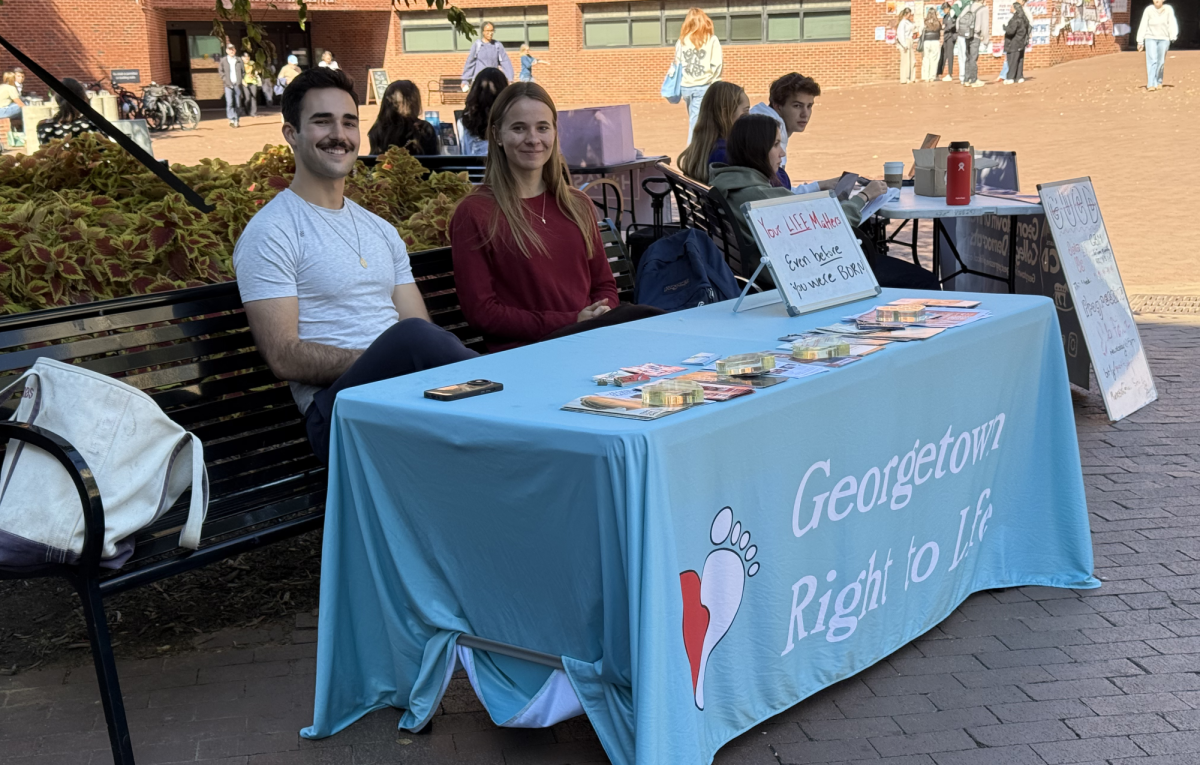
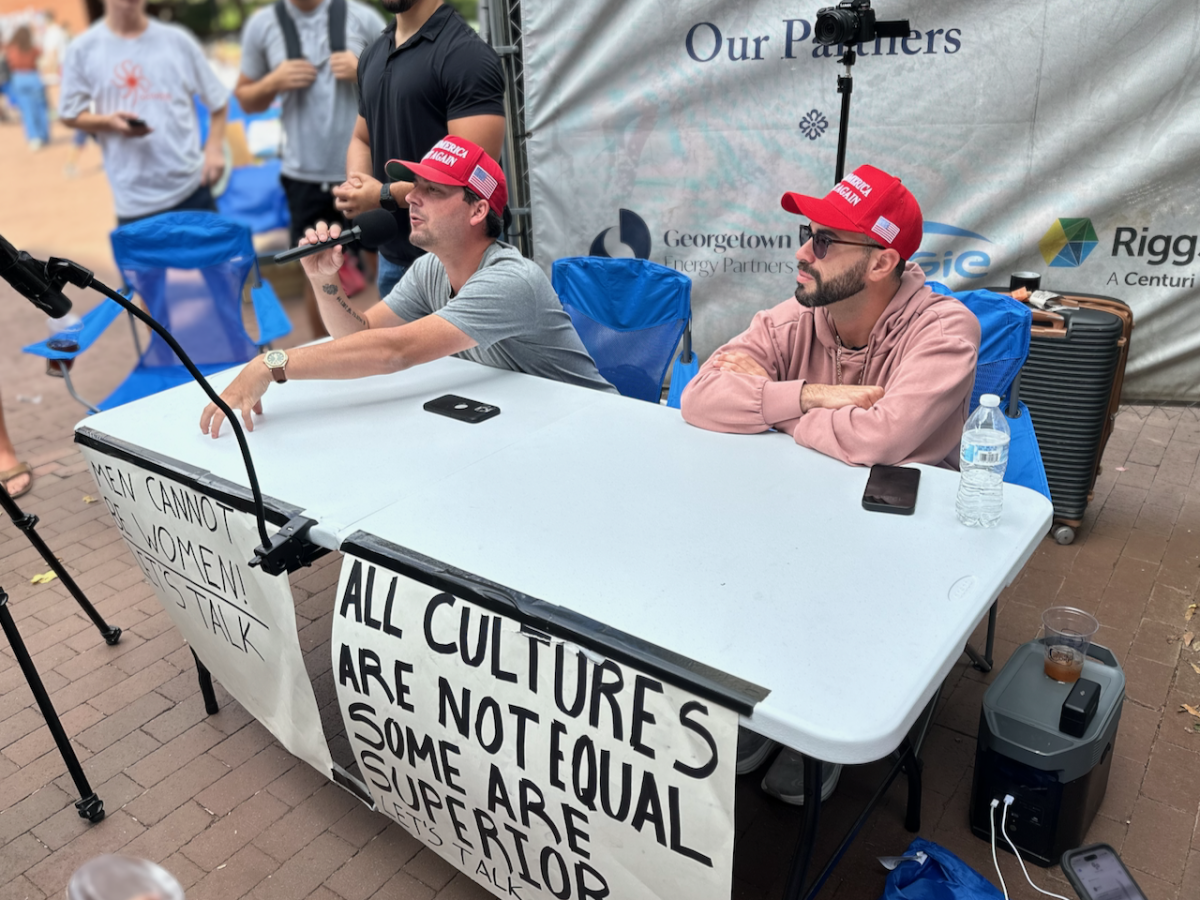
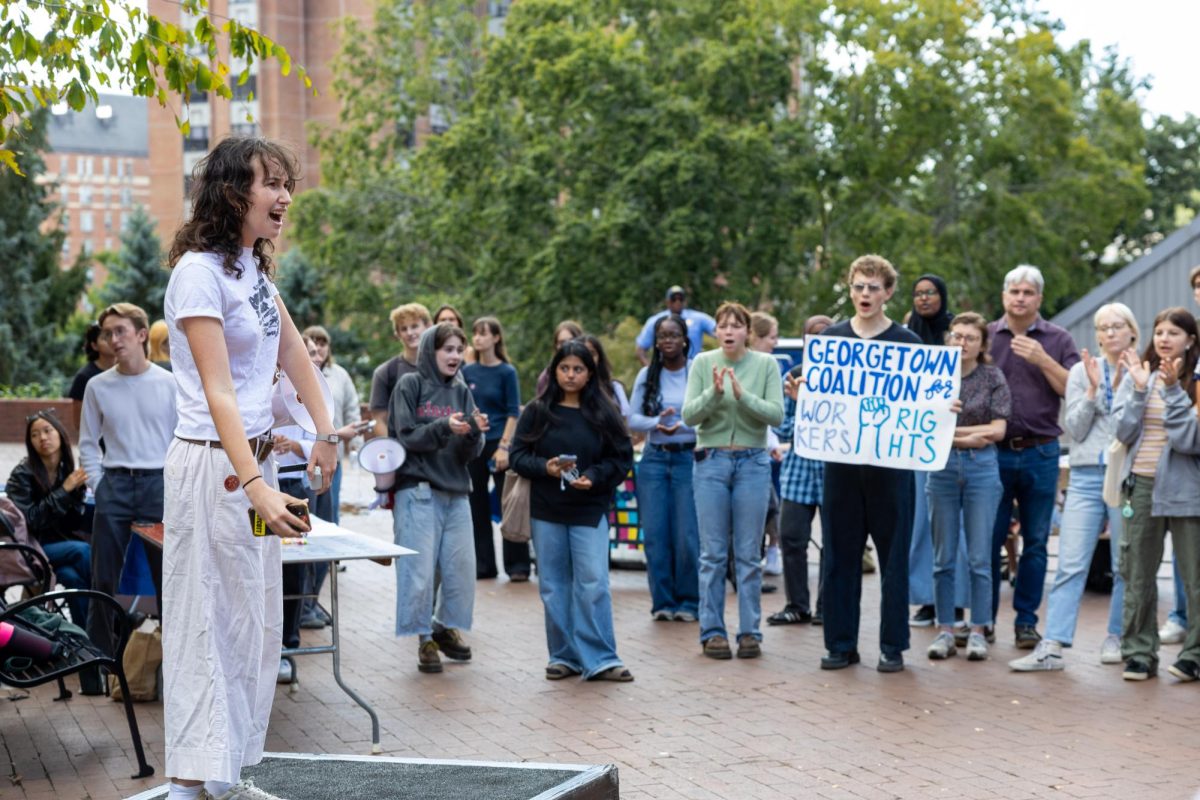


Leslie • May 14, 2025 at 3:59 pm
Free speech, and the right to form an opinion without government interference or coercion is crucial to democracy. Government has no right telling anybody they can, or cannot say or think anything